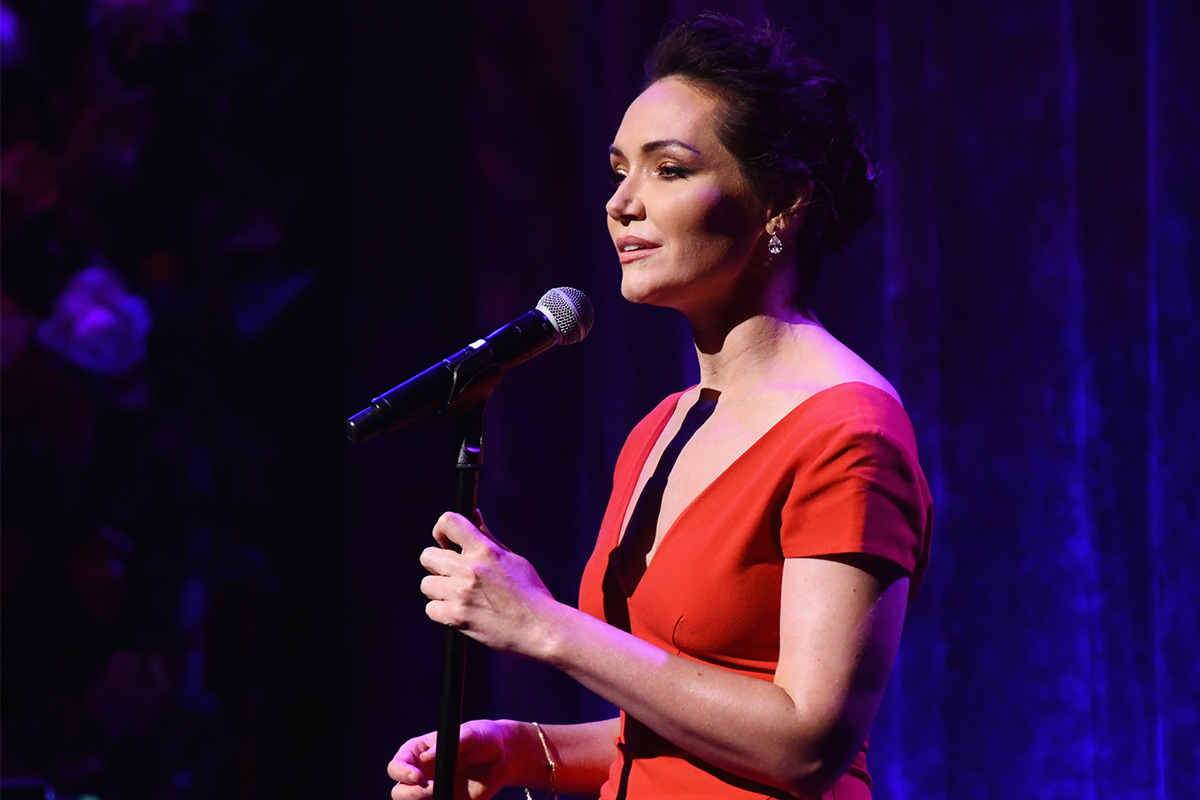I was supposed to be doing homework, but instead found myself pulling up my friend’s BroadwayHD account to find one more play to watch before her subscription expired. I can multitask, right? I didn’t even explore my options. I just went straight to the search bar to find my favorite: Paula Vogel’s beautiful play “Indecent.” The 2017 Broadway masterpiece centers on the creation, and subsequent controversy, of Sholem Asch’s play “God of Vengeance,” a Yiddish play from the turn of the twentieth century about a Jewish brothel owner who commissions a Torah for his daughter’s marriage dowry. Through this, he hopes to gain respect — but when his daughter Rifkele falls deeply in love with a female prostitute, all his plans fall apart.
When “God of Vengeance” made it to Broadway in 1923, it was shut down on opening night on obscenity charges, mainly for its open lesbianism — and because local Jews worried that its portrayal of Jewish brothel owners would exacerbate already-present antisemitism. “Indecent” beautifully conveys the wonders of theater along with its gorgeous Jewish lesbian relationship. It emphasizes the importance of telling all stories, not just the heroic ones, even before they are widely accepted. But that’s not why I’m writing about it.
I am continually amazed every time I watch “Indecent” and find myself especially in awe of Katrina Lenk, who plays Manke, the prostitute that Rifkele falls in love with, among other roles (each cast member portrays multiple, but related, characters). The way she commands the stage — with beauty, imagination, and care — is extraordinary. You cannot take your eyes off of Katrina. From Manke in “Indecent,” to her 2018 Tony-award winning turn as the charming Israeli Dina in the musical “The Band’s Visit,” to her performance of “If I Were a Rich Man” from “Fiddler on the Roof,” she exudes Jewishness. It is hard to think of a Broadway actress who is more Jewish than Katrina.
Except Katrina is not Jewish.
Watching Katrina perform, I just assumed she was, as did everyone else. All the evidence was there. I discovered I was wrong upon texting my friend about how she is the best Jewish stage actress; I then posed the question I had not yet thought to ask. “Wait… she IS Jewish, right?” His response: “I don’t actually think she’s Jewish, but she plays it well.”
I sped over to Google and, upon further research, I confirmed that she is indeed not Jewish. I went from site to site, hoping more evidence would contradict this, but it did not. I was shocked, as was my friend, and jokingly said that sometimes it seemed Katrina is more Jewish than me, a one hundred percent Ashkenazi Jew. How could it be that Broadway’s best Jewish actress… is not actually Jewish at all?
This notion of the “best Jewish” stage actresses not being Jewish is part of a much bigger theme of how Jewish women are portrayed in entertainment, which can basically be summed up with… not by Jewish actresses. In her recent Time article, Sarah Seltzer outlined why Jewish women in Hollywood are rarely portrayed by Jewish actors — including, but not limited to, in the movie “On the Basis of Sex” and the television shows “Mrs. America” and “The Marvelous Mrs. Maisel.”
Both Hollywood and Broadway have an overwhelming number of Jewish actresses; we are a very well-represented minority. Why can’t those who are actually Jewish play these roles, and why is it that in some cases, like Katrina’s, those who are not seem to do it so well? As outlined by Seltzer, Jews not being able to portray themselves is “not exactly racism or cultural appropriation, because Jewishness does not fall neatly into the categories of race, religion or ethnicity — some consider it one or another or some combination of the three — and because white Jews have access to white privilege in America.” But there is also an aspect of Jewish women being “too Jewish” to play their own roles, and the message this sends to the public.
In many ways, Katrina Lenk, who currently stars in the revival of Stephen Sondheim‘s “Company” on Broadway, has made a name for herself playing Jewish roles. She is the first Jewish Broadway actress I think of, even if that isn’t true. When have Jewish actresses Idina Menzel or Shoshana Bean gotten to portray as many Jewish roles?
I still watch Katrina perform with so much joy, but also a bit differently. Maybe it’s envy at how well she seems to “be Jewish,” or anger that though she is amazing in this role, a Jewish actress should be playing it. Maybe her performance should not be so beautiful if it is not her truth.
The theater industry feels so Jewish; our minority takes up as much space as the majority. My wish is for Broadway to continue providing space for Jewish stories to be told — but to allow those who carry the history of the characters in their hearts to tell them more frequently. Non-Jewish women do not need to be barred from playing Jewish women, but it is important to change the standard and let more Jewish women play these roles. With time, hopefully the list of the “best Jewish” actresses will grow more, well, Jewish, and Katrina Lenk will find herself in more Jewish company.



